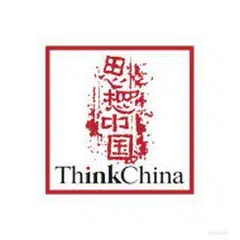The US's new National Security Strategy: An action plan to defeat China
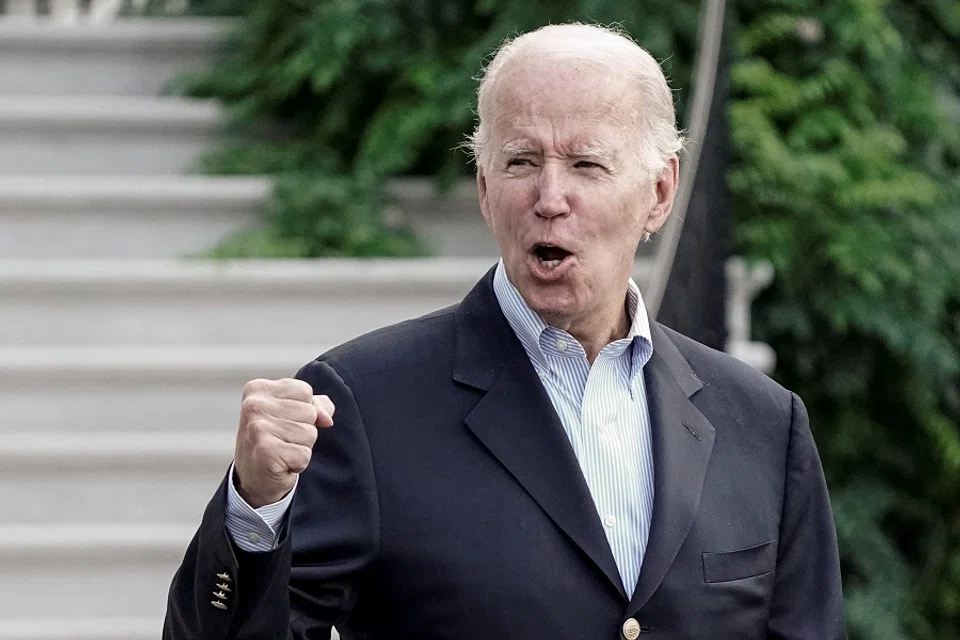
The Biden administration recently published the 2022 National Security Strategy (NSS). While its publication was delayed by the Russia-Ukraine war, its target is clearly not Russia, the instigator of the war, but China.
Reviving a Cold War mentality
US-China competition features prominently in the NSS, with close to half of the 48-page report mentioning China. "Competition" is mentioned at least nine times in the section on "China" and there is no talk of a need for US-China cooperation. The document also intentionally calls Beijing the People's Republic of China (PRC).
In the eyes of the US, Russia is the "arsonist" while China is the "revisionist" of the international order.
Evidently, China is seen as the greatest institutional threat to US democracy, with the NSS stating that "democracies and autocracies are engaged in a contest to show which system of governance can best deliver for their people and the world". In the next few years, an overwhelming challenge for the US would be to "outcompete China and constrain Russia".
Russia's decline has been made apparent by the Russia-Ukraine war. In the eyes of the US, Russia is the "arsonist" while China is the "revisionist" of the international order. China is also the US's "most consequential geopolitical challenge" and "both our most consequential competitor and one of our largest trading partners". Thus, the new NSS represents the US's vow and action plan to defeat China.
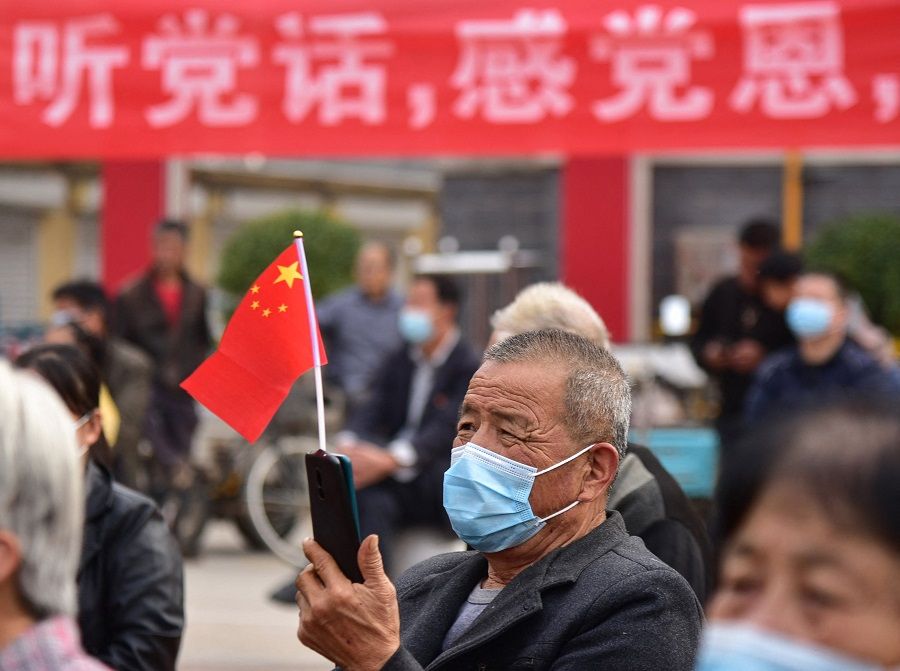
Such a guiding principle is expected to remain unchanged for the next few administrations. The NSS notes that competition with major autocratic powers to shape international order "enjoys broad support that is bipartisan at home and deepening abroad", and that China is "the only competitor with both the intent to reshape the international order and, increasingly, the economic, diplomatic, military, and technological power to advance that objective". In fact, the US already sees China as an enemy.
Meanwhile, the Chinese people have been made aware since a long time ago that the US, as well as other Western countries, are enemies - the US should also understand this fact by now. With all cards laid on the table, China no longer needs to hide behind the notion of "a new type of great power relations" to deflect the US.
Indeed, if a NSS that vows to outcompete China is not aimed at seeking a "new Cold War", what is? The use of the terms "Cold War" or "containment" is just semantics; what matters is whether China and the US are adopting policies and measures that ease tensions, or whether they are making practical moves that hinder China-US communications.
As China maintained its long-established ideology, its doors were never fully open to the US, especially in terms of ideology.
While China is convinced that the US uses a Cold War mentality to look at China-US relations, it should also acknowledge its own long-held ideological belief which has greatly impacted relations between the two countries. The reality is, China has been a firm defender of the Cold War mentality - the famed Nine Commentaries on the Soviet Union published from 1963 to 1964 criticised Soviet leader Nikita Khrushchev's theory of peaceful coexistence and detente (a period of the easing of Cold War tensions between the US and the Soviet Union) with the US.
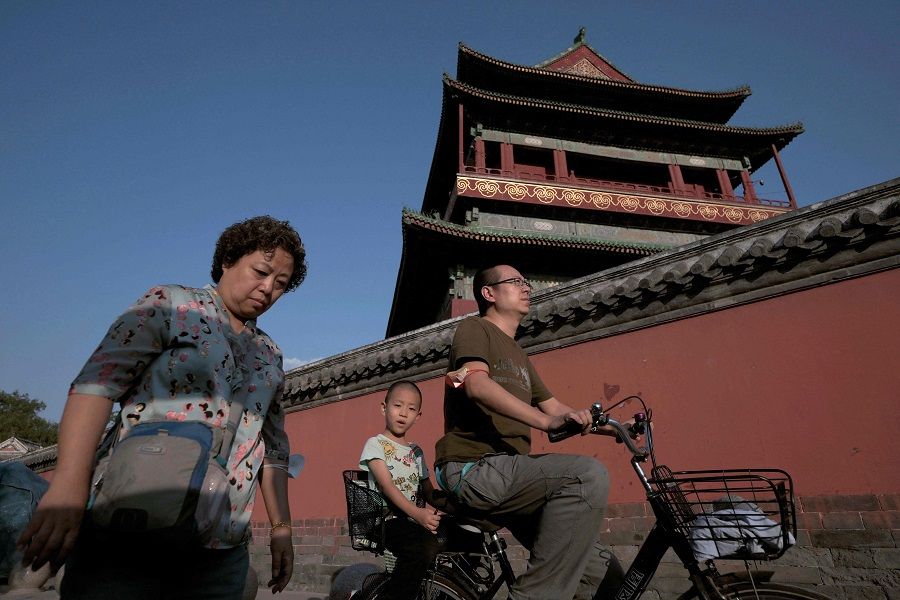
Safeguarding Marxism and destroying capitalism was the original intention of the Communists. The history of the Chinese Communist Party (CCP) is one of constant struggle. The CCP had condemned the Soviet Union's revisionist social imperialism and the fact that it restored capitalism.
Despite the US allowing China Central Television to operate in the country to "tell the China story well", China will never allow any American television station to operate in China to spread "corrupt capitalist ideologies".
East wind prevails over West wind
As China maintained its long-established ideology, its doors were never fully open to the US, especially in terms of ideology. Meanwhile, the US is gradually closing its door, which was previously thrown open. While the US allowed China to set up Confucius Institutes in the country, they are no longer popular. Besides, China will never allow the US to set up a "Washington Institute" in China.
Despite the US allowing China Central Television to operate in the country to "tell the China story well", China will never allow any American television station to operate in China to spread "corrupt capitalist ideologies". But amid growing anti-China sentiment among the US public, it will be increasingly difficult to "tell the China story well". The US's loss of trust in China is the fundamental reason for the significant decline in China's image in the US.
The NSS describes the US's "most pressing strategic challenge" as that arising from "powers that layer authoritarian governance with a revisionist foreign policy". It adds that it is their behaviour that poses a challenge to international peace and stability, "especially waging or preparing for wars of aggression, actively undermining the democratic political processes of other countries, leveraging technology and supply chains for coercion and repression, and exporting an illiberal model of international order". It also notes that some parts of the world are uneasy with the competition between the US and the world's largest autocracies.

From this point alone, one can see that the US's power has declined. The US has long dreamed that a Marxist party would go on a capitalist route. Mao Zedong said, "Either the East Wind prevails over the West Wind, or the West Wind prevails over the East Wind," adding that there is no room for negotiation in the route to take.
Hence, the CCP armed with Mao Zedong Thought has successfully prevailed over the west wind. Mao Zedong Thought followers believe in the rise of the East and the decline of the West, and also in Xi's words of a world in unprecedented turbulence, but with time and momentum on China's side. They believe that as long as there are the "four confidences" (四个自信), and if one holds on to the spirit of the "foolish old man who removed the mountains", any miracle can be created.
The document adds that the US has always succeeded "when we embrace an affirmative vision for the world that addresses shared challenges and combine it with the dynamism of our democracy and the determination to out-compete our rivals".
The new NSS also shows the confidence of the US government through this statement: "Conversely, the United States has a tradition of transforming both domestic and foreign challenges into opportunities to spur reform and rejuvenation at home. This is one reason that prophecies of American decline have repeatedly been disproven in the past - and why it has never been a good bet to bet against America."
The document adds that the US has always succeeded "when we embrace an affirmative vision for the world that addresses shared challenges and combine it with the dynamism of our democracy and the determination to out-compete our rivals".
'Invest in our strength'
Where does the US get its confidence? Michael Beckley, an assistant professor of Poliical Science at Tufts University, gathers that the CCP's domestic suppressions and external provocations reflect its anxiety that time is not on its side.
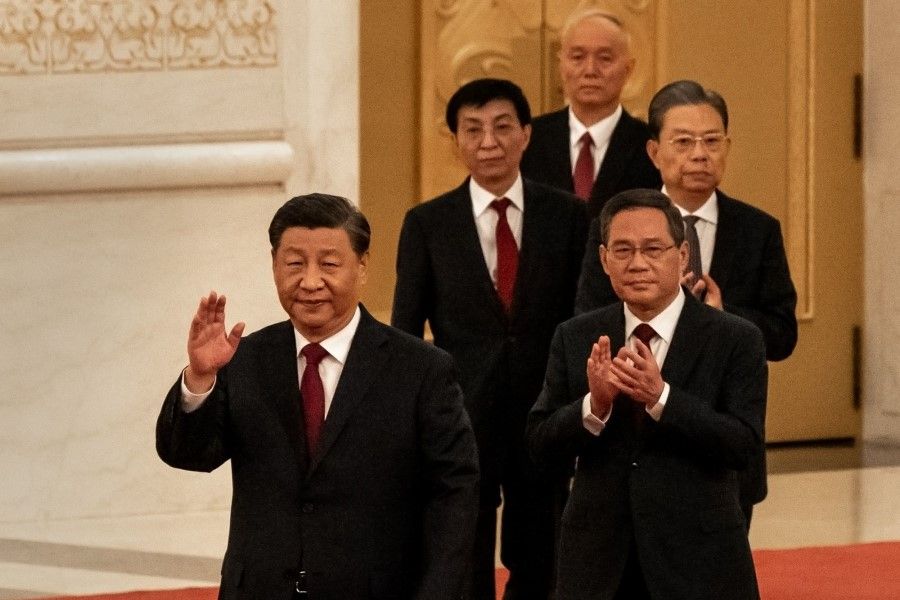
In his book Unrivaled: Why America Will Remain the World's Sole Superpower, Beckley sets out his research into China's national and military strength, and its weaknesses. He argues that the US is the most efficient producer of power on the planet; the EU lacks unity; Russia is a declining power; and China, although enjoying an amazing economic expansion, is haunted by suppressed urges for democracy and potential regional fragmentation and weighted down by an ageing population. GDP and other common indicators have created the false impression that China can catch up with the US economically.
After the US confirmed its mindset on its strategic competition with China, the new NSS states that its aim is "a free, open, prosperous, and secure international order. We seek an order that is free in that it allows people to enjoy their basic, universal rights and freedoms." And the US defined three lines of effort already taken up by the government: investments, strategic alliances, and strengthening its military.
If China and the US focus on building up their own strength, that is the best way to influence the world. Be it a horse or donkey, just take it out for a walk - only by putting words to action can one know the truth.
What stands out about these three points is that it breaks the division between domestic and foreign policy, and takes into account the connection between resolving domestic issues and the US's international position. That is to say, the US will plant its feet domestically, strengthening its infrastructure, reviving its manufacturing sector and key emerging technologies, and revitalising innovation. In other words: "Invest in our strength."
Similarly, China believes that "the most important thing is doing our own thing well". Indeed, China and the US have something in common when it comes to strategic competition. If China and the US focus on building up their own strength, that is the best way to influence the world. Be it a horse or donkey, just take it out for a walk - only by putting words to action can one know the truth.
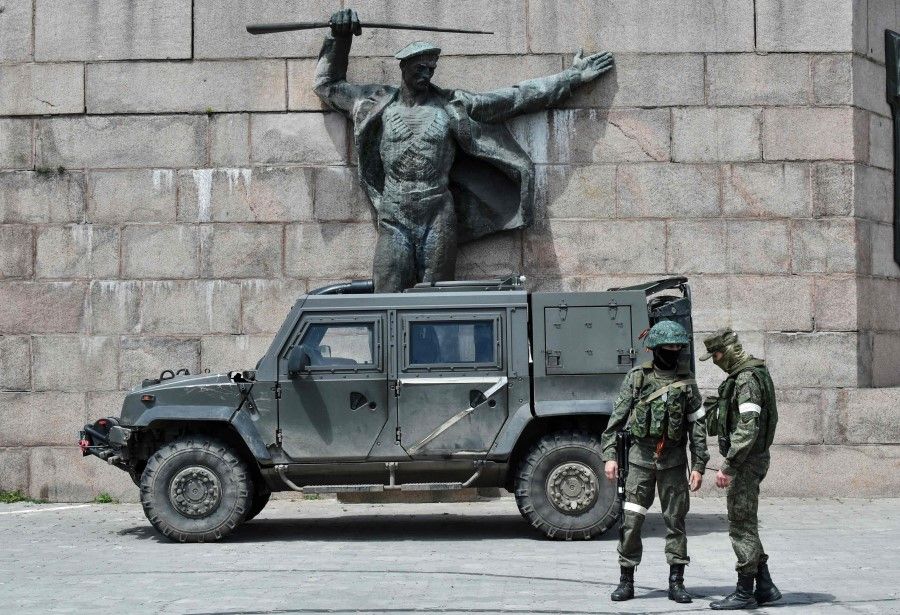
Russia's absolute failure in the war in Ukraine has exposed the truth about its system. Russia's torrent of steel is being torn apart by the Ukrainian military armed with NATO equipment and IT weaponry; and the US HIMARS rocket launcher turned the tide in the war. Furthermore, the equipment abandoned by the Russian army that could be recycled to arm the Ukrainian army has already exceeded NATO's total assistance to Ukraine. Russia has spoken to the world and educated its people about its strength.
Forty years of reform and opening up have also shown China's strength. The subsequent years-long chip competition would be the ultimate test of China's system. Can the unlimited intelligence and talent of 1.4 billion Chinese who love their party and country, with the advantage of being able to "do great things with concentrated power" (集中力量办大事), triumph over the US?
For the new US NSS to be released concurrently with the running of China's 20th Party Congress, God has fired the starter's pistol in the China-US strategic competition, while Father Time is making a fair judgement.
Self-sufficiency and hard work are where China traditionally has the advantage. As Mao would have it, if China does not win and overtake the US after 50 or 60 years, it might as well be "read off the face of the earth".
That was a playful way of saying if you hit your head against a wall, you should admit your mistake. But never admitting one's mistake is the greatest mistake of all, because only God and the deities are flawless. To err is human.
While it is of no consequence to destroy your own reputation when you do not admit your mistakes and continue to err, destroying the interests of most people, as well as the country's future development, is an incalculable sin. The lessons of ten years of the Cultural Revolution should not be repeated.
For the new US NSS to be released concurrently with the running of China's 20th Party Congress, God has fired the starter's pistol in the China-US strategic competition, while Father Time is making a fair judgement.
